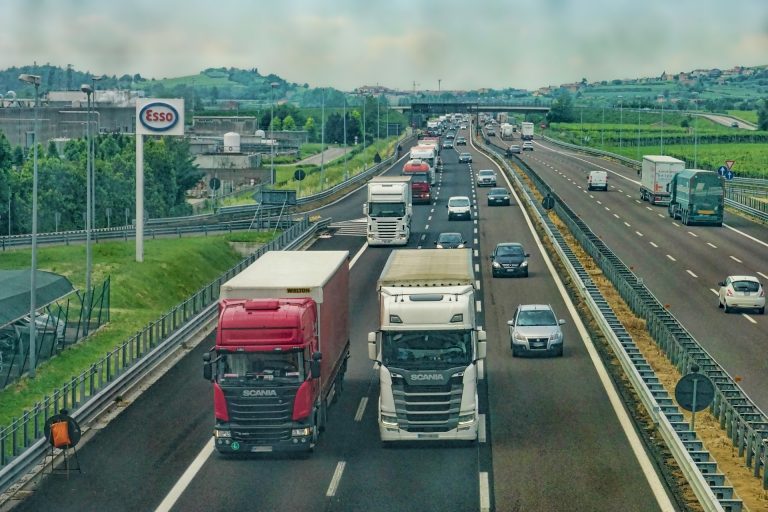Isuzu and Hino, two prominent Japanese vehicle manufacturers, will be entering the zero-emission light truck market in 2022. Hino will be launching its Dutro Z EV truck in early summer while Isuzu will release the electric version of its popular Elf truck sometime next year. These electric trucks will have a capacity of two to four tons.
In March, Hino, Isuzu, and Toyota announced a partnership in commercial vehicles through which the three companies will be collaborating on electric, connected, autonomous driving, and fuel-cell technologies. Hino is the truck division of Toyota. Together, these three companies account for almost 80 percent of the truck market in Japan. The new partnership firm will be 80 percent owned by Toyota, with Isuzu and Hino sharing the remaining 20 percent equally.
“By creating this 3-company collaboration, our aim is to streamline the logistics industry in Japan and beyond while moving towards carbon neutrality and developing next-generation C.A.S.E. strategies which include EV, connected, and autonomous technologies. It is true that Isuzu and Hino are rivals in the truck business, but after I invited them to join our collaboration, they understood that working together was the best plan of action to improve the logistics industry,” Akio Toyoda, president of Toyota, said in a statement.
Two other Japanese firms, Daihatsu Motor and Suzuki Motor have also joined the alliance led by Toyota aimed at boosting the EV market in Japan. The country’s manufacturers have been so far sluggish in building all-electric trucks for various reasons; one being high battery costs. A battery can make up to about 30 to 50 percent of the total cost of a vehicle. To make matters worse, trucks require multiple batteries given that they are built to travel long distances carrying heavy loads.
Electric trucks from a Japanese manufacturer cost almost double that of conventional options, which makes sales difficult unless the government offers subsidies. It is in this matter of price that the Chinese trucks will prove to be a tough competitor. SG Holdings, the parent company of Japan’s logistics company Sagawa Express, has reportedly ordered 7,200 light trucks from a Chinese company that will deliver the vehicles at 1.3 million ($11,900) yen to 1.5 million yen ($13,735) apiece.
Success
You are now signed up for our newsletter
Success
Check your email to complete sign up
In July, Japan’s HW Electro debuted a light electric truck at a price range of two to three million yen, which is two times the price of the Chinese option. Provided that features, quality, and customer service are all similar, the Chinese-made trucks would have an advantage over the Japanese ones. As such, Hino, Isuzu, and Toyota will have to step up their game to retain the dominance they have in the domestic truck market.
Government emissions control
The growing interest in electric trucks among Japanese vehicle manufacturers comes as the country has devised a ‘green growth strategy’ aimed at reducing carbon emissions. A plan unveiled in December had promised that Japan would achieve carbon neutrality by 2050. In June, Tokyo revised the plan, focusing on promoting the use of electric vehicles for commercial use and the use of carbon-neutral fuels.
The government is aiming at having 5,000 electric trucks of 8-ton capacity and larger deployed in the country by 2030. By this time, a policy for larger trucks will also be set. The administration has already planned to ban the sale of gasoline-only cars and shift to EVs by 2035.
Prime Minister Yoshihide Suga has pledged to reduce greenhouse gas emissions by 46 percent in 2030 from 2013 levels. Electrification of vehicles is a critical part of the government’s plan to cut down emissions. In 2019, 36.8 percent of CO2 emission in the transportation sector was accounted for by trucks and other cargo vehicles. The share of passenger cars was 45.9 percent.
To boost the transition towards electric vehicles, Japan will expand its EV charging stations from the present 30,000 to 150,000 by 2030. Hydrogen fuel stations will increase from 150 to 1,000. In May, the government also announced an investment of 370 billion yen ($3.4 billion) in two projects aimed at boosting the use of hydrogen fuel. The country is looking to increase hydrogen demand from 2 million tons to 3 million tons by 2030 and 20 million tons by 2050.
“One (of the projects) will be an up to 300 billion yen project to create a large-scale supply chain of hydrogen and promote demand for the clean fuel. The other 70 billion yen project will develop a large-scale, cost-efficient hydrogen production system by water electrolysis using electricity derived from renewable energy sources,” according to Reuters.














